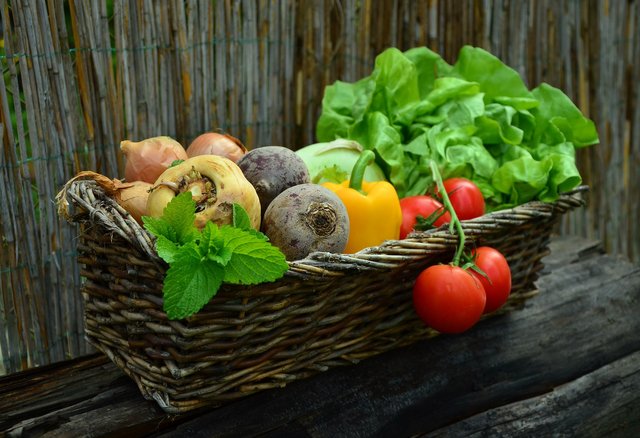Think you’re eating healthy? Why I went whole food plant based after trying vegan, paleo, GAPS, and low-carb: SCIENCE

Understanding the best way to eat is challenging in the climate of misinformation and garbage foods being promoted here in the U.S. I was confused for a long time and also motivated by silly things such as vanity, following diets that I thought would help me build muscle and flatten my tummy. Then a myriad of mysterious symptoms appeared, sending my health in a downward spiral that no doctor or alternative practitioner seemed to be able to identify. That sent me on a long journey through the Internet and many, many health and diet books. I had been eating pretty much paleo and low-carb for about five years, and then I came across the GAPS diet, which promised to “heal and seal” my inflamed gut. I started using (gag) lard in my cooking! My partner asked if I could please cook with that stuff outside and he wouldn’t touch it with a 10’ pole. Meanwhile, my symptoms got worse.
Then, thanks to how Amazon.com displays its helpful suggestions at the bottom of its pages, I clicked on the catchy title of a book published in 2015 called How Not to Die: Discover the Foods Scientifically Proven to Prevent and Reverse Disease, by Michael Greger, MD, and Gene Stone. The reviews looked good, and the info was backed by science. Having two degrees in the sciences and spending half of my career in a lab, in the field, or in a research library, I figured that was a good thing. I was not disappointed. The book has over 100 pages of referenced scientific studies in the back. I have never seen that in a book intended for the general public, so I was quite impressed. I had finally found authentic information among the mountain of crap that gets published. It became obvious that a whole food plant based diet is the healthiest way of eating known to human kind.
I had been vegan for about five years when I was in my 20s, but that was for ethical reasons, certainly not for my health (since Lucky Charms and doughnuts were fine to eat on that diet). I was more concerned about minimizing my environmental impact and being kind to the animals. I didn’t know anything about the importance of B-12 or DHA/EPA (generally lacking in a vegan diet; supplements are necessary) or the harm caused by added sugar, fat, salt and processed junk.
I felt really stupid that I hadn’t even been considering my LONG-TERM health in the big picture of my life. I had been focused on the appearance of being fit and healthy. I hadn’t been thinking of preventing things like heart disease, cancer, diabetes, or Alzheimer’s (which all run in my family), and apparently, the seeds of those diseases can start decades before they manifest as something detectable. For example, by the time a breast lump is detectable by a mammogram, it may have been growing 20 years or more (see this Dr. Greger video). By age 10, kids may have fatty streaks in their arteries, a forecast for future heart disease (here’s another Dr. Greger video).
I followed up How Not to Die with the 2016 version of The China Study: Revised and Expanded Edition: The Most Comprehensive Study of Nutrition Ever Conducted and the Startling Implications for Diet, Weight Loss, and Long-Term Health, by T. Colin Campbell, MD, and Thomas M. Campbell II. That’s an even more accessible read (if you don’t want to wade through the more robust content in Greger’s book) and focuses mainly on heart disease. I moved onto the processed food industry, fascinated and horrified at how they spend millions of dollars to keep us hooked on their brands (see these 2013 books: Pandora's Lunchbox: How Processed Food Took Over the American Meal, by Melanie Warner and Salt Sugar Fat: How the Food Giants Hooked Us by Michael Moss. And these video documentaries: Forks Over Knives, Fed Up, and Cowspiracy.)
A very brief summary of what I’ve learned so far:
Some harmful substances in animal foods (I’ll delve further into these points in future posts)
• Antibiotics
• Heavy metals
• Heme iron
• Hormones
• Persistent Organic Pollutants (POPs)
• Animal protein
• Saturated fat
• Viruses not killed by normal cooking temperaturesRefined foods, isolates, addictive compounds, including the many forms of added SOS (sugar, oil, salt) harm our endothelium (the lining of our digestive tract), raise our blood pressure/sugar, produce cancer-causing free radicals, and are linked to many chronic diseases
Regarding # 2, I had been under the illusion that coconut and olive oils were healthy fats, that pink Himalayan sea salt was healthy because it contained lots of minerals, and that honey and maple syrup were healthy because they are “natural” sugars. However, if you spend the time it takes to track down the original scientific source (if there is one) of any nutrition article, you’ll find in every case that scientific studies showing benefits of meat, dairy, eggs, fish, sugar, oil, or salt are mainly funded (often covertly) by the industries standing to benefit. Either that, or it’s just nonsense promulgated by “health” nutrition writers that has no backing in credible science.
I got so fired up and passionate that in order to avoid shouting this new-to-me knowledge from the rooftops or proselytizing to innocent people on the street, I started teaching classes. I believe my ulterior motive in teaching was to meet some people that I could eventually befriend and with whom I could share mealtimes. This way of eating can feel pretty isolating, especially since my partner and I live in an area where locally-raised cattle and locally-harvested wild meat are greatly valued. I love hearing stories from my students about how they’ve shared the information with friends, family and coworkers and how they and others have lost weight and/or reversed chronic conditions like rheumatoid arthritis and high blood pressure.
I’ve spent 40+ years of my life feeding my body crap (even though I thought I was eating pretty healthy for most of that time), and I’ll spend the rest of my life reversing the damage and building the healthiest body and mind I’ve ever had. Now, when I eat, it’s not to satisfy a craving or to stuff my face with “comfort” foods, but it feels almost sacred when I’m preparing delightfully colorful and purely delicious plant based meals and savoring every bite without rushing towards the next mouthful or “hit” of SOS.
I’m not saying that WFPB is a “natural” way to eat, whatever that is, but from what I’ve learned, it does seem to be optimal. It combines the best of what we know with modern access to a wide diversity of whole plant foods (at least through decent-sized grocery stores and farmers markets and home gardens), helping to make it entirely possible and practical. It does mean preparing more food at home, so it takes a significant commitment to your long-term health to make it work. But aren’t we worth the effort?
And my health issues? Much improved! I feel so grateful to be on this WFPB journey (and that my partner eventually came along with me), and I am looking forward to sharing with you many information nuggets and recipes in future posts.

Interesting stuff. If what you say is true then our notions about what makes food good may need to be re-evaluated. More research needed.
Thank you for the article. My experience with WFPB has been very similar. I started in April of 2018 and haven't felt better in many many years. Many of my health issues have improved significantly. I too feel like spreading the word to anyone who will listen and have been thinking of starting a group for others who are interested in or are currently on this plan to share ideas and experiences.